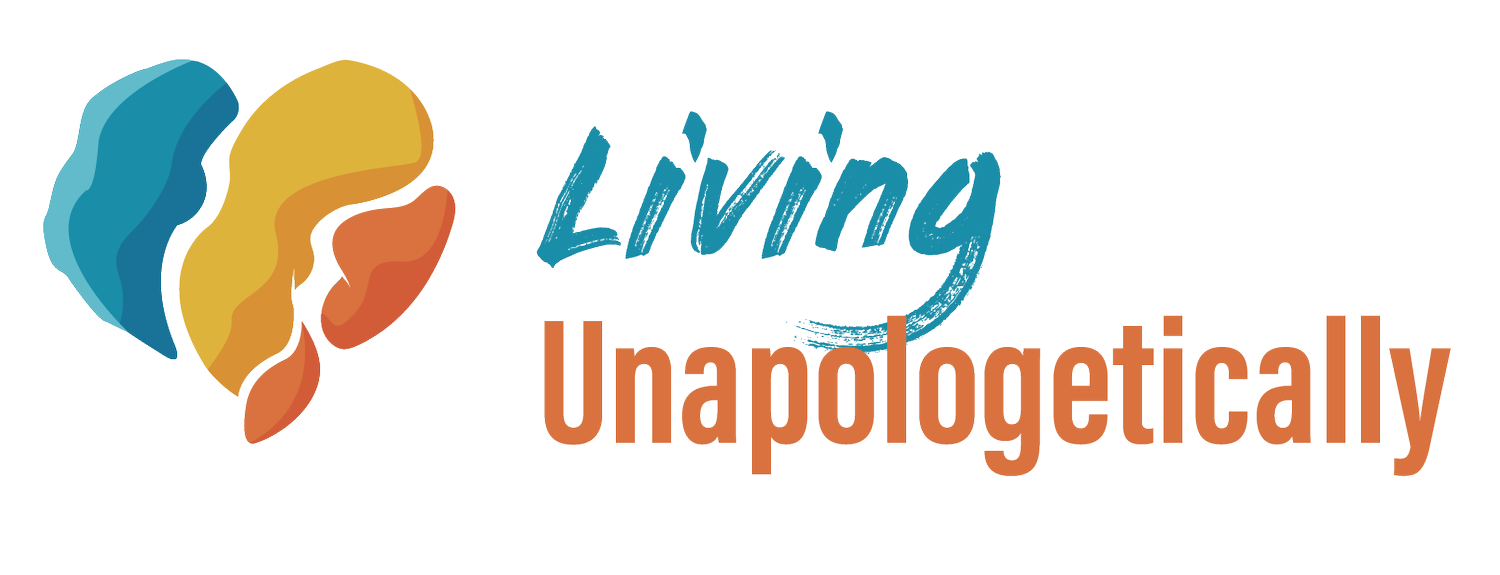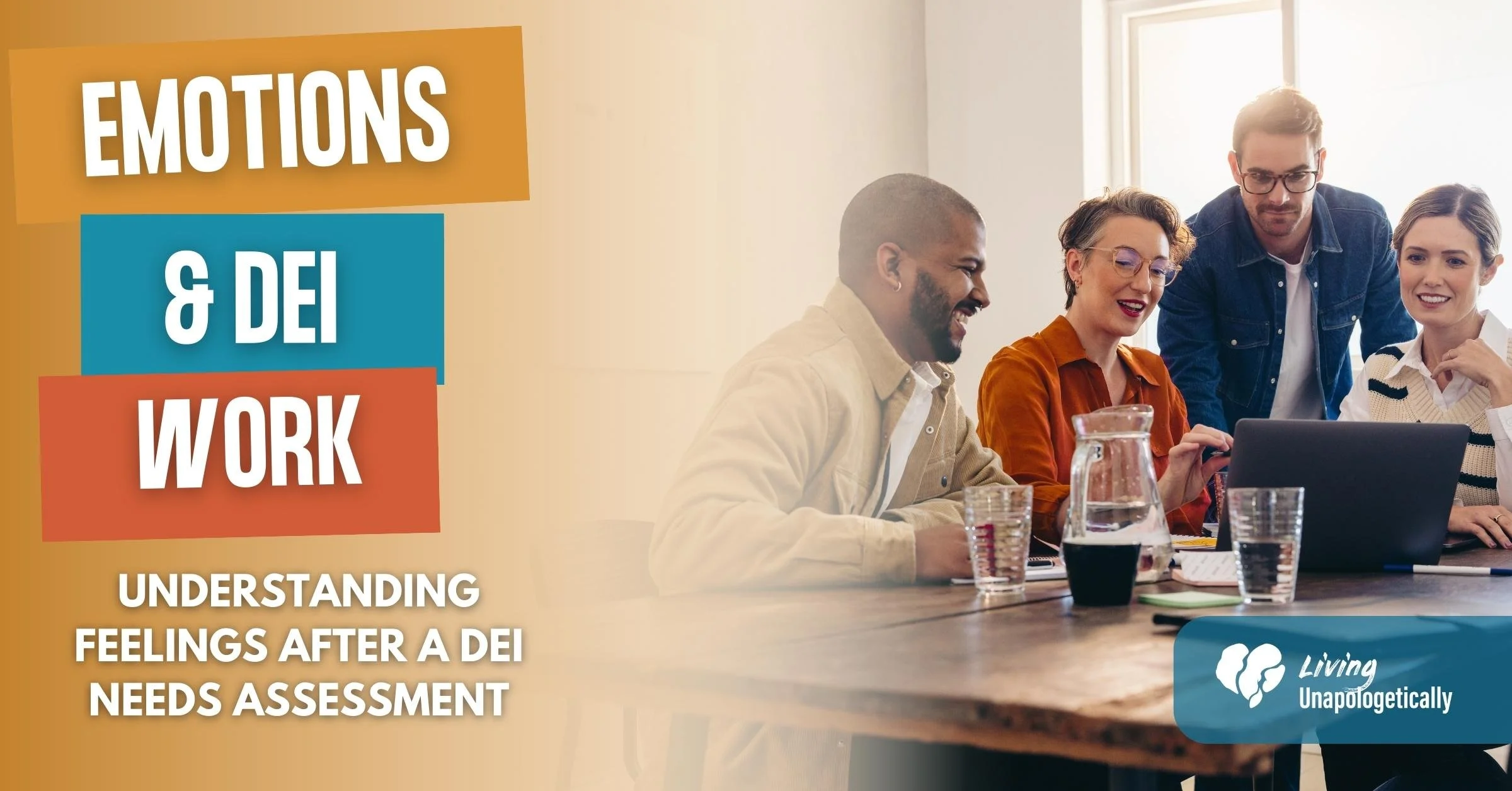Understanding the Emotions that Come up After an EDI Needs Assessment
Congratulations! You’ve taken the significant and critical step of committing to a culture of equity, diversity, and inclusion at your agency, and you’ve engaged in a needs assessment to see exactly where your agency’s strengths and opportunities lie. It is a commendable move that will forever change the work for you, your staff, and your clients. But something this impactful will not be easy. More than just a linear process where you and your agency attend a training to check off a box, building a culture of equity, diversity, and inclusion takes effort, and if it feels comfortable or good to do it, then something’s probably missing.
Like a board game where the possibility of sliding backward is as likely as the opportunity to progress, the EDI journey ebbs and flows. You can decide to bow out when the work feels too difficult or confront the setback head-on and emerge resilient. This sounds a lot like what we ask of the colleagues and clients we work with, doesn’t it?
As you embark on this journey, it is important to know that you’re not alone and strong emotional reactions - like guilt or frustration - to your agency’s needs assessment are common. Here is what the process looks like for many:
(C) Living Unapologetically 2021
EXCITED AND HOPEFUL
A significant majority of leaders start the process excited to begin the EDI process. There’s a sense of hope and they make a commitment to do the work - whatever that may look like - to achieve the EDI goals.
DISAPPOINTED
When the needs assessment results come back, the initial hope and excitement turn into disappointment. The motivation fades; leaders are disheartened by staff feedback and have a creeping sense that what they are doing isn't good enough.
DEFENSIVE
Leaders may see the feedback as a reflection of them as a person and have difficulty processing the information objectively. They may reject the needs assessment results, question the validity of the data, or blame feedback on employees they perceive to be “troublemakers.” They may counter the feedback with examples of EDI efforts already in place to demonstrate that they are already doing a good job.
OVERWHELMED
At the same time, a leader can feel intimidated by the work that needs to be done. It feels difficult to know where to start and identify what they can realistically do compared to what they want to do. They look for an immediate change to “fix” the situation, and not knowing a clear path forward creates discomfort.
CHALLENGED
Going through this process makes many leaders realize that traditional professional standards are rooted in white supremacy and oppression. Suddenly, the typical ways of operating are a barrier at best and, at worst, the cause of the issues they are trying to address. Leaders must decide if they want to take on the systemic barriers or choose simple, performative actions (e.g. Juneteenth as a holiday, using more diverse photos in promotional materials) with little change to actual practices and procedures.
At this point, the process has been so emotionally taxing that many leaders give up and exit the process here. For those who remain committed, there is a path forward. Engaging in deeper work as a team helps unearth current behaviors and practices that are at the root of the EDI issues an agency wants to address.
AWARENESS
Leaders in this process become aware of how they, even unintentionally, perpetuate white supremacy in the workplace. Dismantling this dynamic requires more than just reading about anti-racism. It involves actively engaging in ongoing learning through training and coaching and developing a working knowledge of implicit biases and anti-racist, culturally responsive concepts (i.e., privilege, power, oppression, elitism, and more) and talking about them openly with stakeholders. The most significant growth can occur when a leader acknowledges their behaviors and becomes more comfortable with dismantling traditional professional standards to create a safe, inclusive workplace for all employees.
OPERATIONALIZING
From this awareness comes a leader’s commitment to infuse themself into the larger system. This looks like engaging in courageous conversations to understand how anti-racist behaviors exist and explore ways to improve personally and in the workplace. Operationally, leaders take the time to implement mechanisms to promote feedback on systems, practices, and decisions to ensure inclusion is embedded in the agency. This creates an environment where issues are addressed instead of bypassed, and the agency becomes fluent in culturally responsive language. Taken together, these elements create the transparency that is one of the most valuable pieces of the puzzle.
Like any major journey, this is nearly impossible to complete alone. This is where an external consultant becomes vital. Having an external consultant can help you process the information emotionally, identify the reasonable next steps, and stay motivated and accountable even when the work is difficult.
Contact us if you’re ready to try a new approach to DEI in your organization and would like a partner in your process!
Charmaine is a Relational DEI expert who sits at the intersection of thinking, feeling, and doing. She is an author, facilitator, skill builder, safe-space holder, family member, partner, and friend. And in all of those, her DEI lens is in constant use. Charmaine uses a social justice lens to help clients explore their individual and organizational needs amidst the backdrop of power, privilege, and oppression. You can access her book (Bias-Conscious Leadership), guided meditations, free tips sheets & guides, and blog posts on her website, www.livingunapologetically.com.






